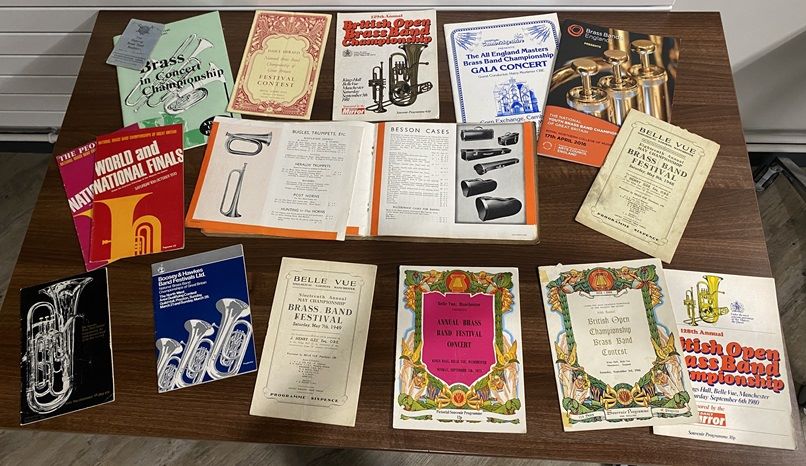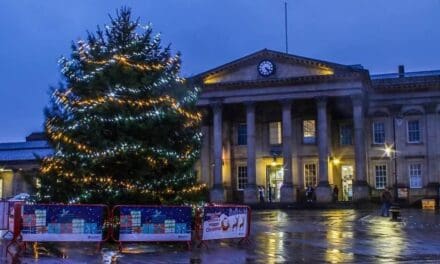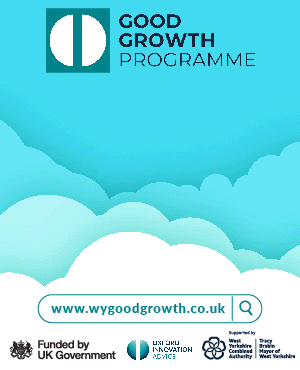The world’s biggest archive on brass bands is in Huddersfield … and it’s open for people to explore its thousands of items.
The archive is owned by Brass Bands England and now housed in Heritage Quay on the University of Huddersfield campus in the town centre.
The ever-growing archive consists of well over 8,000 music sets, hundreds of vinyl recordings, rare instruments, trophies, photographs, contest programmes, publications, stand banners, historic uniforms, artefacts and memorabilia.
Brass Bands England archivist Danni Spargo said: “This collection is a goldmine for enthusiasts and historians alike.”
Notable items range from a first purpose 19th century performing jacket from the award- winning Black Dyke Mills Band to a rare echo cornet believed to be owned by well-known player Harry Mortimer.
The archive, created thanks to funding from the Scottish Power Foundation, can be quickly turned into a pop-up exhibition if any organisations want to host one.
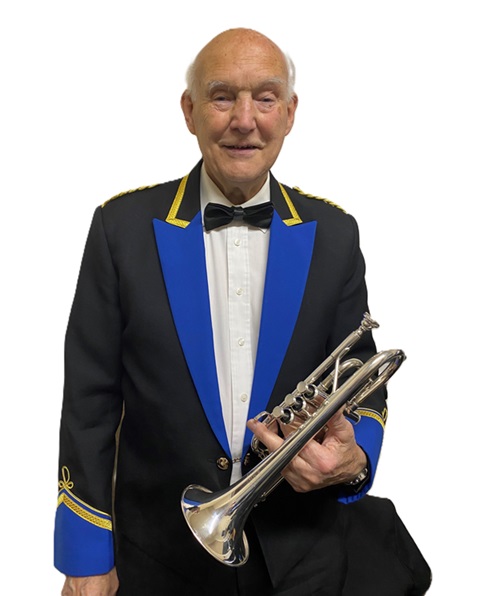
Brass band history is being discovered all the time.
Tony Clarke (above) has been in Meltham and Meltham Mills Band since 1958, has played almost every instrument in the band over the years and is now in the third cornet seat.
He has unearthed a hidden collection of handwritten original scores from the band’s most successful period in the late 19th and early 20th centuries, during maintenance work on their bandroom.
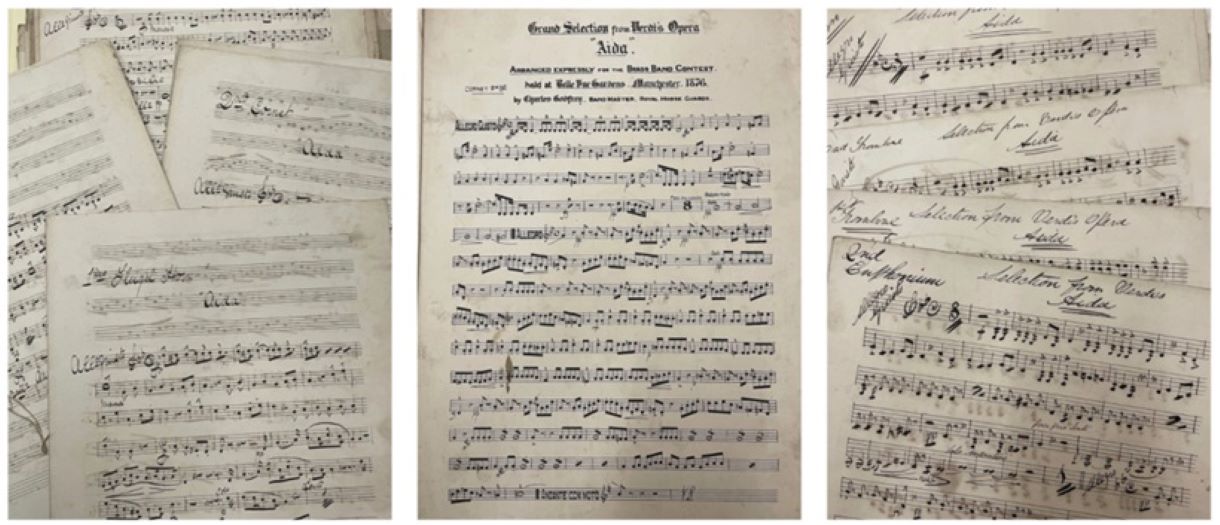
The Meltham and Meltham Mills Brass Band’s early history is closely tied to the prestigious British Open Brass Band contest, the world’s oldest music competition which began in 1853.
The band’s first major victory came in 1873 and it went on to achieve the first-ever treble by winning three consecutive years from 1876 to 1878. This remarkable feat has only been matched by six bands in 170 years of competition.
Tony said: “In 1997 we managed to put an upstairs in our band room to give us more storage space. Our music library was in an old 7ft tall cupboard at the time, like an old wardrobe in the corner of the room, and had been there since the band room was bought in 1952.
“I was the band’s librarian at the time so I went to empty the cupboard to re-home the library upstairs. It was only when I’d completely emptied the cupboard that I realised there was a removable base in it. I lifted this up to find loads of old music.
“Unfortunately, about two thirds of it just completely disintegrated when it was picked up but I managed to salvage the rest. I was amazed to find scores handwritten and signed by the legendary brass band conductor John Gladney and the actual music that was used on stage when Meltham and Meltham Mills were the best band in the world after winning the triple at Belle Vue brass band contest in 1876, 1877 and 1878.
“It’s such a unique glimpse into the band’s musical past and it’s a mystery how the music had been preserved before 1952. We can only surmise from the information we have that when The Brook Company, the mill’s owners, passed the ownership of the band’s equipment back to the band that the music was part of this. It must have been stored in someone’s garage or loft between 1939 and 1952 when we finally got our band room.”
The archive is publicly accessible to researchers, brass bands enthusiasts and anyone else hoping to learn from over a century of banding heritage.
People can access the archive catalogue online at The Brass Bands Archive | Brass Bands England (bbe.org.uk) or visit the reading room by appointment on Tuesdays and Wednesdays between 9am and 5pm. Visitors need to pre-book an appointment to view original documents in the research room.
Heritage Quay also offers online research appointments and all appointments can be booked through their booking form which can be found on the Heritage Quay website at Heritage Quay | What will you discover?
If anyone wants to host the pop-up exhibition then contact at archive@bbe.org.uk
Written by ANDY HIRST who runs his own Yorkshire freelance journalism agency AH! PR (https://ah-pr.com/) specialising in press releases, blogging, website content, copywriting and ghost-writing autobiographies.


